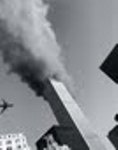Patriots for Truth

On this tenth anniversary of you-know-what, I don’t want to write about 9/11. I’ve written elsewhere about the implausibility of Washington’s story about what happened that day, as have many other astrologers (see especially the blogs of Eric Francis), and the explosive transits under which it happened (see Rick Tarnas’ monograph). It was the first Big Lie of the 21st century, and has amassed so much refutation that a cultural movement arose to hold it.
What I want to look at is the nationalistic energy that dominates the public conversation every September since 2001, the emotive form of which is a strangely compulsive patriotism.
There was a lot of verbal tribute being paid today about those who died in New York ten years ago. Even the comics in the Sunday paper gave it a mention. Some strips featured the characters taking off their hats; some showed family members embracing each other.
I appreciate the solemnity in the air. It’s a rare thing to witness America slowing down and taking off its collective hat, in a mass ritual rooted in unselfishness. It’s something to savor. You can sense people making the effort to recapture that brief, transcendent moment a decade ago, when a magic blend of grief and shock forced the US populace into its collective heart. Our tormented, secular society was provided with an opportunity to reach something like spiritual communion.
As an astrologer I credit the importance of a person living in a certain place. Like all other points of karma, the fact that we identify with one nation and not another is anything but random. But where the 9/11 mourners lose me is the definitive distinction they seem to draw between the tragic significance of their own countrymen dying and that of people in other countries dying. I hear about the three thousand Americans killed in New York that day and I think: Far more than three thousand civilians have been killed in Iraq. And in Afghanistan, by Pentagon drones; right now, this week. And I think: There is a famine spreading through Somalia that is killing a hundred children a day.
But experience tells me that pointing this out is all but universally unwelcome, especially around September 11th. For understandable reasons. It is always grotesque to compare one atrocity with another. It is unseemly to respond with anything other than respect to people who are in the throes of genuine grief, as so many Americans are in this month of remembrance.
The founding fathers are mentioned a lot these days. Their ghosts seem to loom over this anniversary. My neighbor in the Tea Party and I interpret their ideas quite differently, but we both see these 18th-century gentlemen as being central to any discussion of American patriotism.
When I read the political writings of Thomas Jefferson and John Adams, I am amazed, every time, by the prophetic quality of their vision. They could not have imagined body scanners at modern airports, or the prospect of having their data mined by Facebook. But they could and did imagine the general tendency of governments to use fear to curtail a citizen’s freedoms, and they didn’t like that at all. Benjamin Franklin and Tom Paine clearly foresaw the danger it would pose to a democratic republic if citizens were forbidden to criticize their leaders. They passionately denounced the practice of one citizen calling another a traitor for questioning official pronouncements.
Among us today are the postmillennial equivalents of these bold gents: Dr Judy Wood, for example, and the members of Architects & Engineers for 9/11 Truth.
With profound respect for the importance of this milestone in American history, I too salute those souls who incarnated into this land mass with me, during this critical era — for these first decades of this century are the moment of truth for America — and who died ten years ago under mysterious circumstances. And I take my hat off to those patriots who show up for the task of uncovering what really happened.
